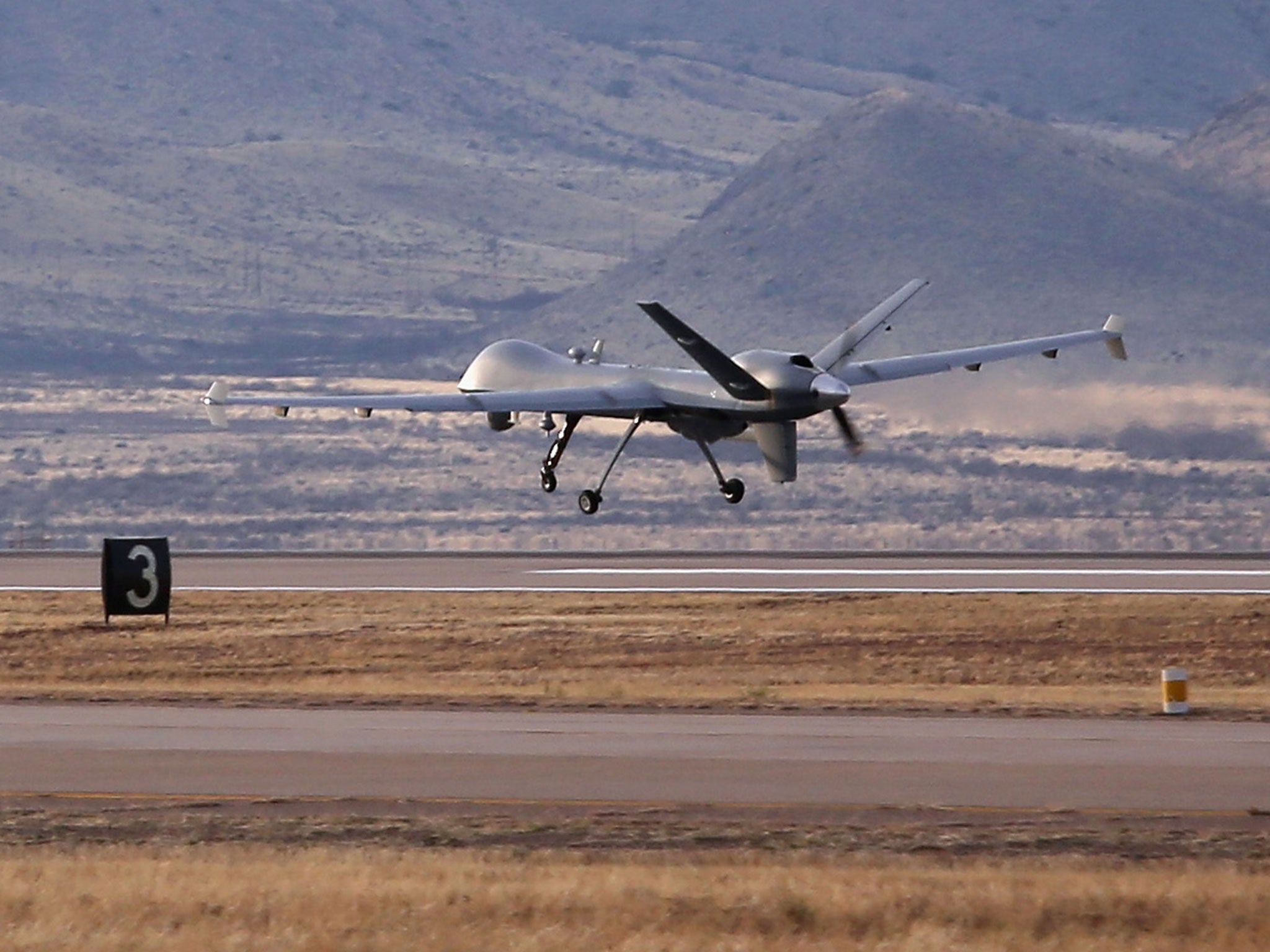Iraq crisis: US steps up drone flights amid intelligence blame game

The United States is rapidly stepping up surveillance activity over and inside the contested areas of Iraq, even as officials try to analyse whether a broad failure of intelligence over recent months and even years was partly responsible for Washington being caught off guard by the Isis advance across the country.
The new effort, which includes flying between 30 and 35 drone flights daily, some of them armed with air-to-surface missiles, is aimed both at assessing the strength of the Isis forces on the ground and also identifying targets for possible future missile strikes against them by the US. In addition, about 200 of the 300 special advisers ordered to Iraq 10 days ago by President Obama are believed to be on the ground now.
Filling in evident gaps in intelligence, some as a result of the final pullout of US troops by Mr Obama in 2011, is now an urgent priority and will become only more so after yesterday’s Isis declaration of a caliphate. Also helping to assess the scope for possible US strikes will be the advisers, many of whom are Special Forces personnel. While some will remain in Baghdad, others will fan out to joint command centres beyond the capital.
“We have to improve our surveillance, reconnaissance, intelligence there,” Mr Obama told ABC News on Sunday, reiterating that targeted air strikes remain an option. “Special Forces are going to have a role. And there are going to be times where we take strikes against organisations that could do us harm.”
Both the White House and the CIA have been on the defensive over allegations that Washington failed to anticipate the strength of Isis.
“The reality is we lost a major intelligence and military footprint in 2011 when we withdrew our forces,” said Juan Zarate, a deputy national security adviser for former President George W Bush.
Some inside Washington’s intelligence community deny having failed to see what was coming in Iraq.
One official insisted they “provided strategic warning of Iraq’s deteriorating security situation… and routinely highlighted [Isis’s] growing threat in Iraq, the increasing difficulties Iraq’s security forces faced in combating [Isis] and the political strains that were contributing to Iraq’s declining stability”.
Join our commenting forum
Join thought-provoking conversations, follow other Independent readers and see their replies
Comments
Bookmark popover
Removed from bookmarks